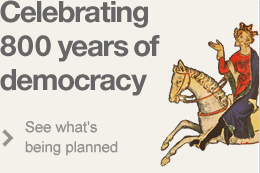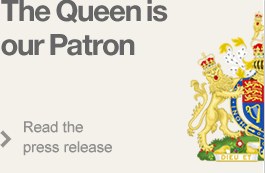William Malet (c. 1175-1215) was one of the sizeable group of rebel barons who were heavily indebted to King John, making the revolt of 1215 in some sense a debtors’ revolt.
William, the lord of Curry Mallet in Somerset, was the descendant of Robert Malet (d. before 1156), first holder of the barony, and the son of Gilbert Malet, who died in 1194. In 1196 he paid Richard the Lionheart a fine and relief of £150 to enter into his inheritance.
William’s early career, characteristically for someone of his background and upbringing, had been in royal service. He had accompanied Richard the Lionheart on crusade from 1190 and he had taken part in the siege of Acre in 1191. He was appointed sheriff of Somerset and Dorset by King John in 1209 after the two counties had petitioned to have someone local as their sheriff instead of the courtier William Brewer, and he served in the office until 1212. By this latter year he was running into financial difficulties, although the precise cause of his problems is not clear, and by 1214 he was owing the king as much as 2000 marks (about £1333). In 1214 he entered into an agreement to serve with the king in Poitou with ten knights and twenty other soldiers in return for the cancellation of his debt. In 1215 he went over to the barons, joining the confederacy at their muster at Stamford in Easter week, and in June was appointed to the Twenty Five.
Malet appears to have died only months afterwards in December 1215, for by that time his estates were in the possession of his son-in-law, Hugh de Vivonia. He left three daughters between whom his estates were divided: Mabel, who married first Nicholas Avenel and then Hugh de Vivonia (d. 1249) of Chewton (Somerset); Helewise, who married first Hugh Pointz (d. 1220), an associate of Malet in the rebellion, and second Robert de Mucegros (d. 1254), a future servant of Henry III; and Bertha, who died unmarried before 1221
By Professor Nigel Saul, Royal Holloway, University of London.
Featured Article
The early settlers in the United States took with them copies of the Magna Carta. One undertaking given by King John in that Charter was as follows: No freeman shall be arrested or imprisoned or disseised or outlawed or exiled or in...
Read on...Recent Articles
- Magna Carta's American Adventure
- 800th anniversary of Bristol...
- Bristol 800 concert and...
- Emancipation and Magna Carta
- Terrorism and Tolerance -...
- Magna Carta
- Magna Carta Benches mark...
- ABA Magna Carta Memorial...
Stay updated
If you would like to keep informed about the work of the Magna Carta Trust and our partners, please sign up to the newsletter below.
Become a Supporter
There are a number of significant supporter opportunities. Register your interest early to ensure the widest range of options.
Find out more




